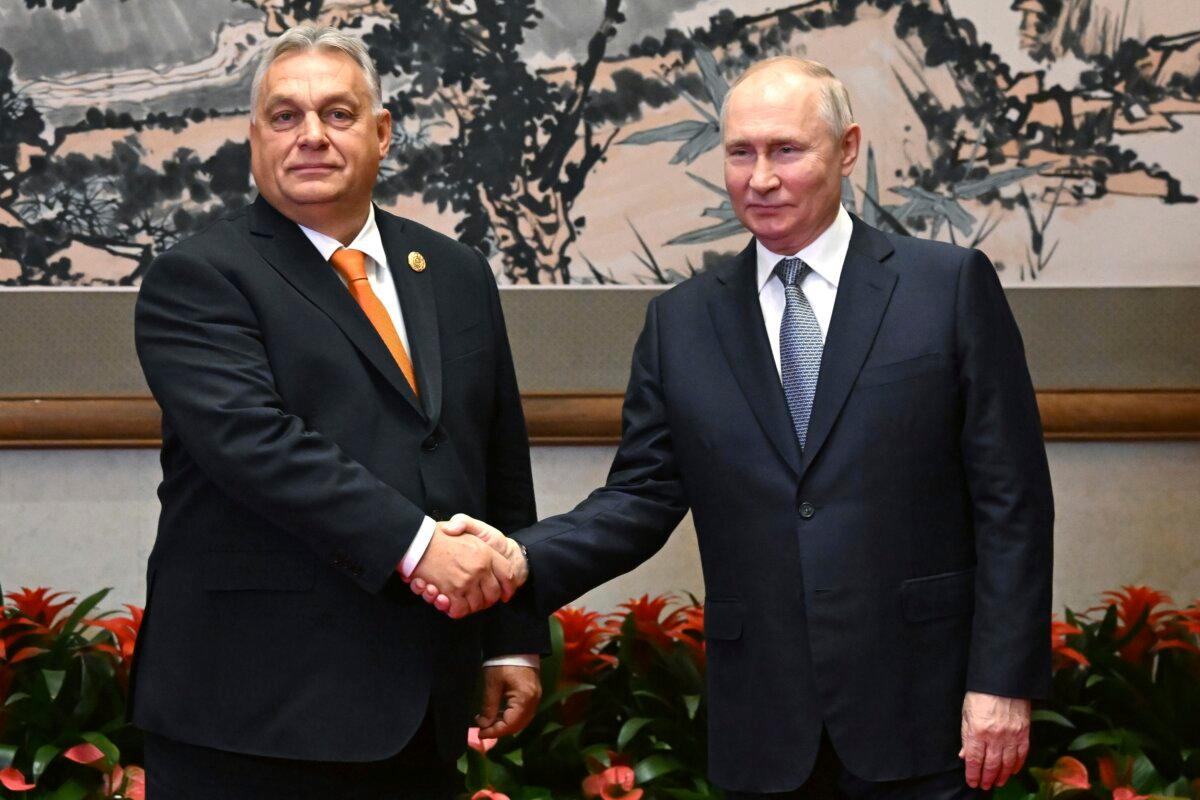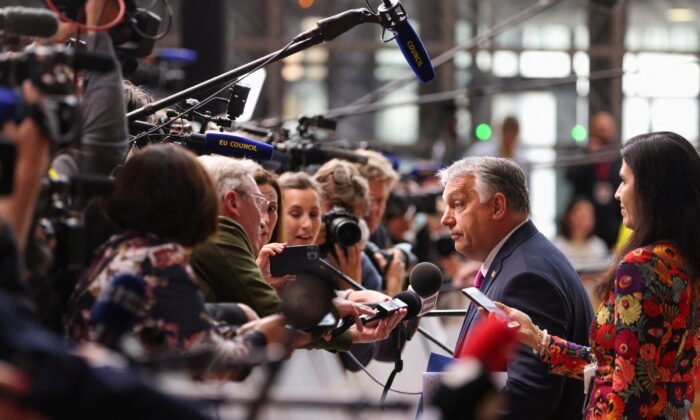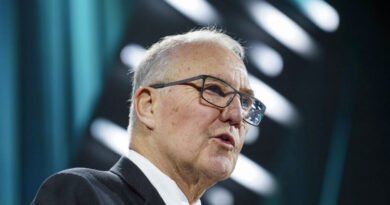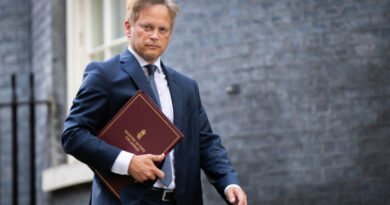Hungary’s Orban Urges Zelenskyy in Kyiv to Consider Ceasefire with Russia
Budapest has gained new prestige by assuming the European Council’s rotating presidency this week.
During a visit to Kyiv on July 2, Hungarian Prime Minister Viktor Orban advised Ukrainian President Volodymyr Zelenskyy to consider a ceasefire with Russia.
“I discussed this possibility with the [Ukrainian] president,” he remarked, “and I appreciate his candid responses and negotiation efforts.”
Mr. Orban’s trip to Kyiv marked his first in over ten years.
It also marked his first international visit since Hungary, an established European Union member, took on the European Council’s rotating presidency on June 1.
In contrast to many EU leaders, Mr. Orban is critical of unequivocally supporting Kyiv—whether militarily or otherwise—and advocates for a diplomatic resolution to the conflict.
He also has a positive relationship with Russian President Vladimir Putin, who initiated an invasion of eastern Ukraine in February 2022 that continues to this day.
At the press conference, Mr. Zelenskyy did not address the Hungarian leader’s ceasefire suggestion.
However, Ihor Zhovkva, his foreign policy adviser, later seemed to dismiss the idea.
In televised remarks, Mr. Zhovkva proposed that holding international summits, like the one recently organized by Switzerland, is the only way to resolve the conflict.
Moscow criticized what it labeled as Kyiv’s “peace rhetoric,” calling it merely “smoke and mirrors.”
“To inflict a strategic defeat on Russia,” she added.

Swiss Summit Stalls
Last month, Switzerland hosted an international summit at Kyiv’s request aimed at exploring prospects for peace.
While Russian officials were not invited, delegates from 90 countries attended the event.
However, non-aligned nations refused to endorse the summit’s final statement, which reaffirmed Ukraine’s “sovereignty, independence, and territorial integrity.”
In response to the Switzerland summit, Moscow offered its own conditions for ending the conflict.
These terms included the removal of all Ukrainian forces from four regions of eastern Ukraine that Russia effectively took over in late 2022.
Under the Russian proposal, Kyiv would also need to abandon its NATO aspirations and commit to a permanent state of neutrality.
Supported by its Western allies, Kyiv promptly rejected the Russian terms.
Up to this point, Kyiv has refused to engage in negotiations with Russia until the latter withdraws from all Ukrainian territory, including Crimea in the Black Sea.
“We are not prepared to compromise on fundamental values … independence, freedom, democracy, territorial integrity, sovereignty,” he told reporters in Washington.

‘Complex Situation’
Relations between Hungary and Kyiv have become increasingly strained since Russia’s invasion 28 months ago.
Under Mr. Orban, Budapest has opposed the EU’s unequivocal support for Ukraine’s war efforts.
In February, Hungary only agreed to a proposed 50 billion-euro (around $54 billion) aid package for Kyiv after pressure from other EU leaders.
Budapest also accuses Kyiv of not respecting the rights of approximately 150,000 ethnic Hungarians in western Ukraine.
Despite Kyiv denying the allegation, it has expressed willingness to address Budapest’s concerns.
Ukraine, aspiring to join the EU, is keen to maintain good relations with Hungary.
Recently, the EU initiated formal accession talks with Ukraine at a summit in Brussels, granting it candidate status at the end of last year.
However, Kyiv needs the unanimous support of all 27 existing EU members, including Mr. Orban’s Hungary, to join the European bloc.
While relations between Hungary and Ukraine are tense, Budapest’s ties with Moscow are relatively cozy, which bothers Mr. Orban’s critics.
Last October, the Hungarian leader met Mr. Putin in Beijing, reiterating their countries’ strong relations.
On July 2, Russian Foreign Minister Sergey Lavrov discussed the Ukrainian situation with his Hungarian counterpart, Peter Szijjarto, over the phone.
Regarding the Lavrov-Szijjarto conversation, the Russian foreign ministry stated that relations with Hungary “continue to develop in the spirit of healthy pragmatism and mutual benefit despite the complicated international situation.”
Reuters contributed to this report.





